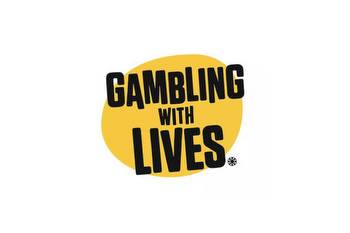Jack Ritchie: English teacher killed himself in Vietnam after battling a gambling addiction

A teacher who took his own life after battling a gambling addiction first started betting on Fixed Odds Betting Terminals (FOBTs) when he was in school, an inquest today heard.
Jack Ritchie, 24, died in Vietnam - where he was teaching - after years of gambling problems dating back to as young as 16 years old, a hearing in Sheffield was told on Monday.
Forensic evidence presented to the inquest showed the Hull University graduate was a regular visitor to the BetVictor online gambling website in the days leading up to his death in Hanoi in November 2017.
At the inquest, taking place in Sheffield, a friend of Jack's described how the pair had started going to bookmakers when they were under-age, in sixth form.
In a statement read to the inquest, Jack's friend Nick Clough, said how at first they would bet small amounts on FOBTs.
He said his friend would try and double his money 'to get a free lunch'. But he said: 'With Jack it became more than that.'
Mr Clough said that his friend won £1,000 in under 30 seconds and, after that, Jack's attitude towards gambling changed as he began looking for the big win and chasing his losses.
Jack's parents, Charles and Liz Ritchie, from Sheffield, believe that failures on the part of UK authorities to address gambling issues contributed to their son's death and have campaigned for reform through the Gambling With Lives charity they set up.
Jack Ritchie, 24, died in Vietnam - where he was teaching - after years of gambling problems dating back to as young as 16 years old, a hearing in Sheffield was told on Monday
In a statement read to the inquest, Jack's friend Nick Clough described how they started going to bookmakers when they were under-age, in sixth form, and at first bet small amounts on FOBTs
Mr and Mrs Ritchie believe the inquest, which is due to last two weeks, is the first so-called Article 2 inquest in a case relating to suicide following gambling.
This means its scope will include an examination of whether any arm of the state breached its duty to protect Mr Ritchie's right to life.
The couple believe an undiagnosed gambling disorder lay behind their son's death and have argued there were no public health warnings about the risk to life posed by gambling products, and that their son was not diagnosed or offered treatment that linked his symptoms to gambling disorder.
Jack's parents, Charles and Liz Ritchie (pictured), from Sheffield, believe that failures on the part of UK authorities to address gambling issues contributed to their son's death and have campaigned for reform through the Gambling With Lives charity they set up
At the start of Monday's proceedings, senior Sheffield coroner David Urpeth said the evidence will cover topics including what information was available to Jack and his family about the risks of gambling and also what medical treatment was available to him.
Mr Urpeth said that his examination of how Sheffield United fan Jack died will include 'whether gambling caused or contributed to his death'.
The coroner said he understood Mr and Mrs Ritchie wanted the scope of the inquest to be an even wider analysis of Government gambling policy and told them: 'I do not want the family to think I am disinterested in their wider concerns.
'It's just that such concerns are beyond the power invested in me.'
The inquest began in Sheffield Town Hall with a video montage of happy moments from Jack's life.
Following this, Mr Ritchie gave a pen-portrait of his son in which he described him as a 'fine young man on the threshold of his life' who 'brightened the lives of everyone around him'.
Jack's family previously revealed how the teacher had gambled away a £5,000 inheritance from his grandmother and student loan money.
They said prior to his death that he had Skyped them and told them he was feeling down because he had gambled again, on British websites.
They bought blocking software for his computer and they thought he had installed it during the call.
Three days later, that the couple opened an email with a suicide note attached.
Jack's (pictured) family previously revealed how the teacher had gambled away a £5,000 inheritance from his grandmother and student loan money
Through their charity Gambling With Lives, set up in the wake of Jack's death, the couple have been on a mission to get gambling viewed precisely as tobacco and drugs are – a risk to life.
The Ritchies’ hope is that their son's inquest will identify gambling and its causes in its conclusions.
With QCs Paul Greaney and Jesse Nicholls driving the case, the issues will be submitted to a more unsparing public examination than ever before.
Speaking prior to the inquest, Mrs Ritchie said: ‘It was the effect of gambling on Jack’s mental health that caused his death.
‘He thought he was free of it but it kept coming back. You never think you never think you will be free.’
Fixed Odds Betting Terminals, where Jack is said to have started his gambling, have been a controversial talking point for many years.
Prior to changes in the law, they were criticised for allowing users to gamble as much as £300 per minute.
And FOTBs have previously been considered so addictive by experts that they have been compared to class A drugs.
Figures from March 2017 showed the annual revenue from the controversial machines was a staggering £1.8billion – or £93 for every family in the country.
Through their charity Gambling With Lives, set up in the wake of Jack's (pictured left with his mother) death, the couple have been on a mission to get gambling viewed precisely as tobacco and drugs are – a risk to life. The Ritchies’ (pictured right) hope is that their son's inquest will identify gambling and its causes in its conclusions.
Experts, including Professor David Nutt, the Government's former drugs tsar, also warned about their dangers.
Speaking in 2016, he said: 'No one is going to get addicted from placing a bet on the Grand National once a year.
'But on these machines you can place 50 bets an hour.'
Explaining the science behind the addiction, he said: 'Gambling addiction has a biological basis.
'The brain has a chemical abnormality similar to those that have other additions.
'Addicts have a brain defect because they are programmed not to function without their addiction.'
Following a Daily Mail campaign, a new law was introduced limiting the amount people can bet on the FOBTs to £2.
Revenue from the machines fell from £1.1billion to £624million between October 2018 and September 2019.
Betting shops also suffered sales declines during the Covid pandemic, with stores having to close during lockdown.
But there are fears that gamblers moved online, with one betting firm recording 23 consecutive months of rising revenues in the division over the last two years.





































